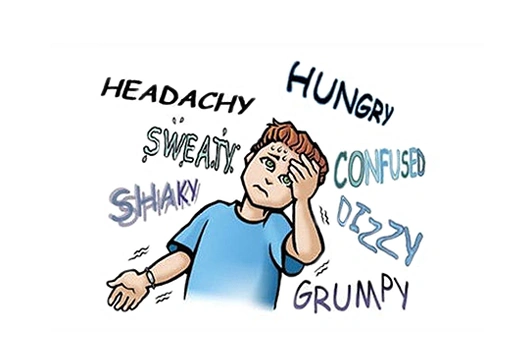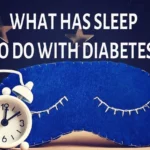Diabetes related hypoglycemia occurs when someone with diabetes does not have enough sugar (glucose) in their blood. Blood glucose (blood sugar) is your body’s main energy source. Your body and brain cannot function well if you don’t have enough glucose in the body. Low blood sugar (Hypoglycemia) is defined as a blood sugar level below 70 mg/dl.
Signs of Hypoglycemia:
Most people feel signs of hypoglycemia when their blood sugar is 70 mg/dl or below. Each person with diabetes may have different symptoms of hypoglycemia.
Early symptoms include –
• Feeling shaky
• Increase heart rate
• Sweaty
• Dizziness
• Anxiousness
• Blurry vision
• Hunger
• Weak or tiredness
• Headache
• Nervous or upset
Nighttime hypoglycemia:
If hypoglycemia occurs when sleeping it symptoms can awaken you such as
• Damp sheets or nightclothes due to perspiration
• Nightmares
• Tiredness, irritability or confusion upon waking up.
Symptoms can differ from person to person and episode to episode. Some people don’t have any noticeable symptoms. It’s important that you measure your blood glucose level when these symptoms occur.
What causes hypoglycemia….
Common causes are:
• Not eating enough of carbohydrates
• Skipping meals
• Increasing exercise or physical activity
• Drinking alcohol
• Eating later than usual
• Decreased sleep
• Irregular meal timings
Preventing Hypoglycemia:
The key to preventing future problem is in understanding what caused hypoglycemia in the first place and then carefully following your diabetes management plan.
• Monitor your blood glucose regularly as described by your doctor.
• Plan your meals not more than 4 to 5 hours apart.
• Take your medicines on time.
• Eat additional snacks and adjust your medications if you increase your physical activity.
• Eat a meal or a snack with alcohol.
• When you have hypoglycemic event make a note of your symptoms, your glucose levels, time, what you ate etc.
How to treat hypoglycemia….
If you think your blood sugar may be dipping too low, check your blood sugar level with a blood glucose meter. If sugar is less than 70mg/dl take 15 grams of glucose or sugar, rest for 15 minutes and check your sugar levels again. After 15 minutes your blood sugar should have been increased to normal. If not then repeat the procedure again. Even after repeating the procedure twice your blood sugar levels do not increase to the desired normal level then you immediately need to consult your doctor and you have to get hospitalized for the same.
If you have previously experienced hypoglycemia, the key to preventing a future problem is understanding what caused the issue in the first place and then carefully following your diabetes management plan.




